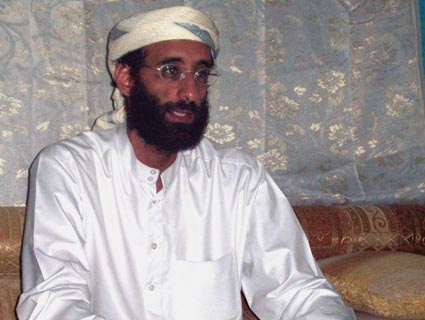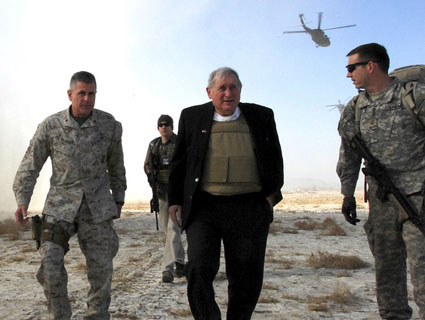The Atlantic‘s Conor Friedersdorf has posted a video of an exchange from a few days ago involving former Obama press secretary (and current Obama campaign adviser) Robert Gibbs, who was asked about the death of Abdulrahman al-Awlaki, the 16-year old son of the late radical cleric Anwar al-Awlaki. Like his father, the younger al-Awlaki was killed in a drone strike in Yemen. “I would suggest that you should have a far more responsible father if they are truly concerned about the well being of their children,” Gibbs said, suggesting the son somehow deserved his death because of the sins of the father. “I don’t think becoming an al Qaeda jihadist terrorist is the best way to go about doing your business.” Watch:
As Friedersdorf notes, the al-Awlakis were not killed together—Abdulrahman was killed weeks later in a subsequent drone strike, and as Esquire‘s Tom Junod wrote, he hadn’t seen his father in two years. That Gibbs appears to believe they were killed together changes the meaning a little bit, since it suggests he wasn’t aware that he was justifying Abdulrahman’s death weeks after the fact.
Still, the US government has never provided any evidence that the younger al-Awlaki was a terrorist or played an operational role in Al Qaeda, and it’s an elementary moral precept that children are not responsible for the sins of their parents. It’s one thing to argue that killing Anwar al-Awlaki was justified because of evidence he was part of Al Qaeda in the Arabian Peninsula, (although one does not simply lose the constitutional right to due process as a US citizen by being abroad); it’s another to justify the killing of a teenager based on decisions made by his father.
It’s worth contrasting Gibbs’ response with that of an anonymous administration official quoted in the Washington Post‘s recently published profile of White House counterterrorism adviser (and targeted killing czar) John Brennan. According to the Post, the official called the younger al-Awlaki’s death “an outrageous mistake. . . . They were going after the guy sitting next to him.”
Perhaps it’s too much to expect an admission of error from a political spokesperson. But no one forced Gibbs to justify Abdulrahman al-Awlaki’s death in such glib and callous terms.










